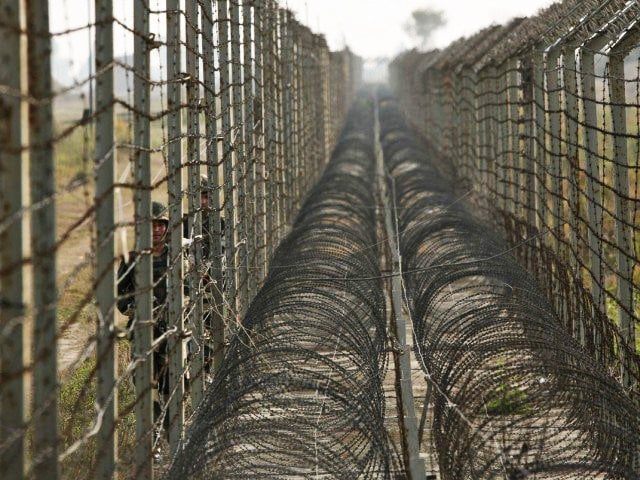By Staff Reporter
ISLAMABAD: A ceasefire between India and Pakistan, brokered by the US administration after intense military clashes, has no expiration date, officials from both countries confirmed on Sunday.
The truce, which quelled the worst escalation in decades, endures despite lingering disputes over Kashmir and water rights that continue to test the nuclear-armed rivals.
The agreement, finalised on May 10, followed heavy shelling, drone attacks, and air strikes along the Line of Control (LoC). US Vice President JD Vance and Secretary of State Marco Rubio, backed by Saudi Arabia, mediated the deal. While initial violations flared on May 11, military commanders have since stabilized the border.
Confusion over the ceasefire’s duration surfaced last week when Deputy Prime Minister and Foreign Minister Ishaq Dar told the Senate on May 14 that the directors general of military operations (DGMOs) from both countries had agreed to extend the truce until May 18.
Media reports seized on the statement, suggesting the ceasefire was set to expire Sunday. But officials from both nations clarified that no DGMO talks were planned for the day and that the agreement, reaffirmed during a May 12 call, carried no set end date.
“There is no expiry date to the break in hostilities, as reaffirmed in the DGMOs interaction of May 12,” newswires quoted an Indian official as saying, to counter rumours of an imminent collapse.
Dawn newspaper, quoting a diplomat, requesting anonymity, saying the ceasefire “remained in effect and carried no set time frame for expiration.”
He described the DGMO discussions as focused on “making the ceasefire sustainable.”
The ceasefire took hold after initial violations were reported on May 11, but military commanders have since worked to stabilize the situation. During the May 12 call, Pakistan’s Maj. Gen. Kashif Abdullah and India’s Lt. Gen. Rajiv Ghai agreed to reinforce mutual commitments to avoid aggressive actions.
The two sides also committed to a phased reduction of forward deployments and regular troops along the international border, restoring the peacetime arrangement where Pakistan’s Rangers and India’s Border Security Force primarily man the frontier.
Foreign Office spokesman Shafqat Ali Khan said the DGMOs “have maintained periodic contact since May 10” and are developing a structured mechanism for de-escalation. The military spokesperson, Lt. Gen. Ahmed Sharif Chaudhry, expressed confidence in the truce’s durability.
“As far as the Pakistan army is concerned, this ceasefire will hold easily, and there have been confidence-building measures in communication between both sides,” he told Arab News on Friday.
But Chaudhry was quick to add a caveat: Any violations would draw a response. “If any violation occurs, our response is always there … but it is only directed at those posts and those positions from where the violations of the ceasefire happen,” he said. “We never target civilians. We never target any civil infrastructure.”
Pakistan sees the ceasefire as a potential bridge to broader talks on long-standing disputes, including Kashmir and water rights. India, however, has struck a more guarded tone. Prime Minister Narendra Modi called it a “temporary pause,” while Defence Minister Rajnath Singh warned that “Operation Sindoor is not over yet … Pakistan is on probation.”
The differing perspectives underscore the challenges ahead. The Kashmir dispute, a perennial source of friction, is again on global radar, and recent developments over the Indus Waters Treaty have added a volatile new layer to the rivalry.
Last month, India unilaterally suspended the 1960 Indus Waters Treaty, blaming Pakistan for a deadly militant attack in occupied Kashmir, an accusation Islamabad denies. The treaty, brokered by the World Bank, has endured multiple wars and is widely regarded as a model for water-sharing agreements. Its potential unraveling has raised alarms.
Lt. Gen. Chaudhry warned of “far-reaching consequences” if India moves to cut Pakistan’s share of the Indus River system. “I hope that time doesn’t come, but it will be such actions that the world will see and the consequences of that we will fight for years and decades to come,” he told Arab News.
“Nobody dares stop water from Pakistan,” he added. “It is some madman who can think that he can stop water of 240 million plus people of this country.”
Chaudhry also tied the water dispute to Kashmir, accusing India of a failed policy. “Their policy on Kashmir—of oppression and trying to internalise it—is not working,” he said. “Till the time Indians don’t sit and talk about Kashmir, then [as] two countries sit, and we find a solution to it, the conflict potential is there.”
Copyright © 2021 Independent Pakistan | All rights reserved




